Israel orders Lebanese to leave swathe of the south 'immediately'
Israel has warned residents to leave a significant area in southern Lebanon, instructing them to move north of the Li...
On 2nd October 2025, the Republic of Guinea marks the 67th anniversary of its historic independence from France, a momentous decision that reverberated across Africa and challenged the entire colonial order.
Guinea's courageous choice in 1958 to reject French neocolonialism in favour of complete sovereignty stands as one of the most significant acts of defiance in African history, earning it the distinction of being the first French sub-Saharan African colony to break free from colonial rule.
The story of Guinea's independence is not merely one of political liberation, but a testament to the power of collective will and the enduring human quest for dignity and freedom.
When Ahmed Sékou Touré famously declared that Guinea preferred "poverty in freedom to wealth in slavery," he articulated a principle that would inspire liberation movements across the continent and fundamentally alter the trajectory of African decolonisation.
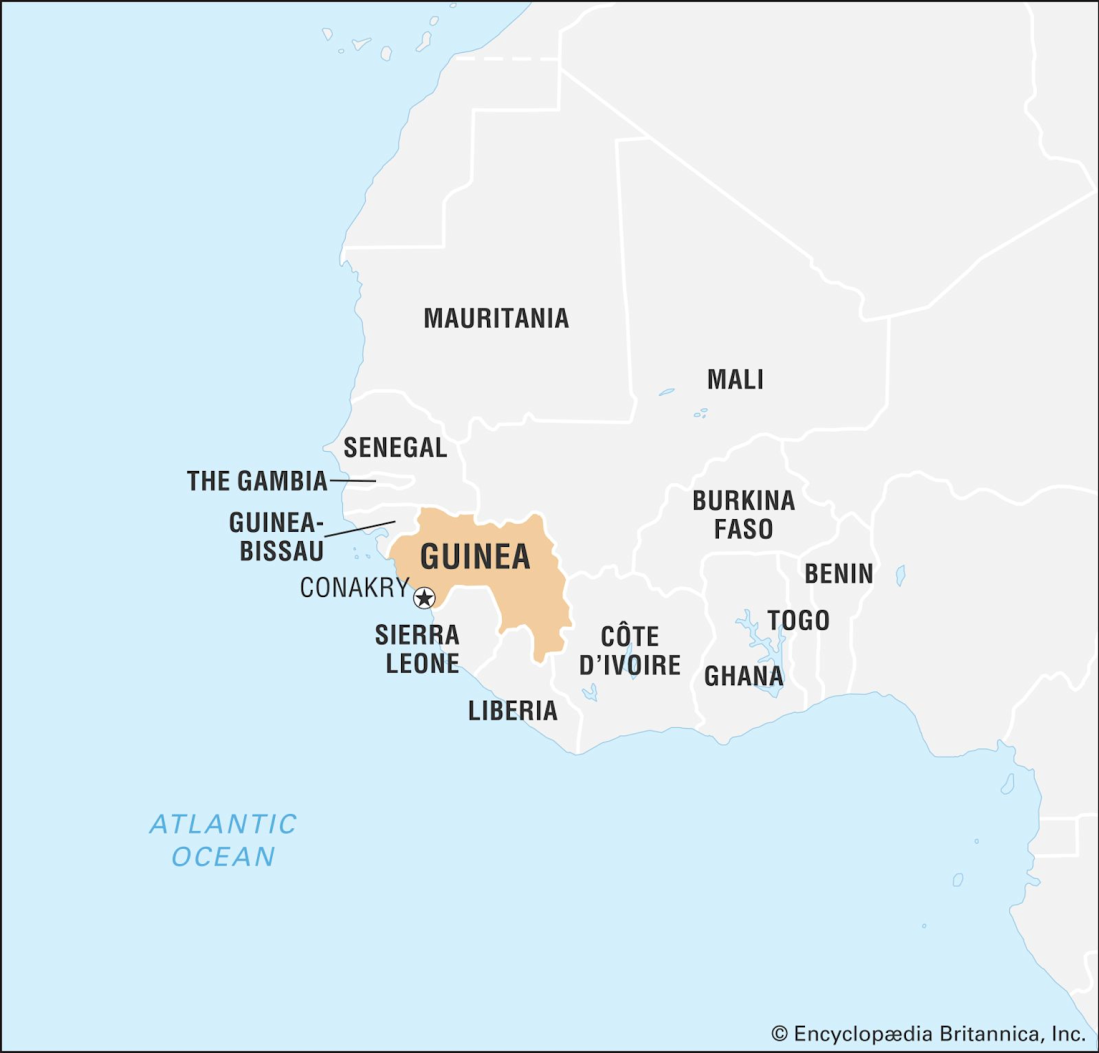
The Path to Independence: Rejecting the French Community
Guinea's journey to independence began with the collapse of France's Fourth Republic in 1958, prompted by the country's failures in Algeria and Indochina.
The newly established Fifth Republic under Charles de Gaulle presented French colonies with what appeared to be a simple choice: join the new French Community with limited autonomy, or opt for immediate and complete independence.
This referendum, held on 28th September 1958, would prove to be a defining moment in African history.
Under the leadership of Ahmed Sékou Touré and his Parti Démocratique de Guinée (PDG), Guinea mounted a vigorous campaign against the French Community proposal.
Touré, the great-grandson of the legendary resistance leader Samori Touré who had fought French colonisation in the 19th century, understood that the French Community was essentially a mechanism to perpetuate colonial control under the guise of autonomy.
The PDG argued that joining the Community would reduce Guinea to a "junior partner" status, maintaining French dominance over crucial areas such as foreign policy, defence, and economic development.
The campaign's centrepiece was Touré's electrifying speech of 25th August 1958, in which he proclaimed: "Il n'ya pas de dignité sans liberté. Nous préférons la liberté dans la pauvreté à la richesse dans l'esclavage" (There is no dignity without freedom. We prefer freedom in poverty to wealth in slavery). This declaration resonated deeply with Guineans who had endured decades of colonial exploitation and were determined to chart their own destiny.
When the referendum results were announced, Guinea delivered a resounding "No" vote, with approximately 95% of the population rejecting continued association with France. This overwhelming mandate made Guinea the sole French colony in sub-Saharan Africa to choose immediate independence, setting it apart from its neighbours who opted for the supposed security of continued French oversight.
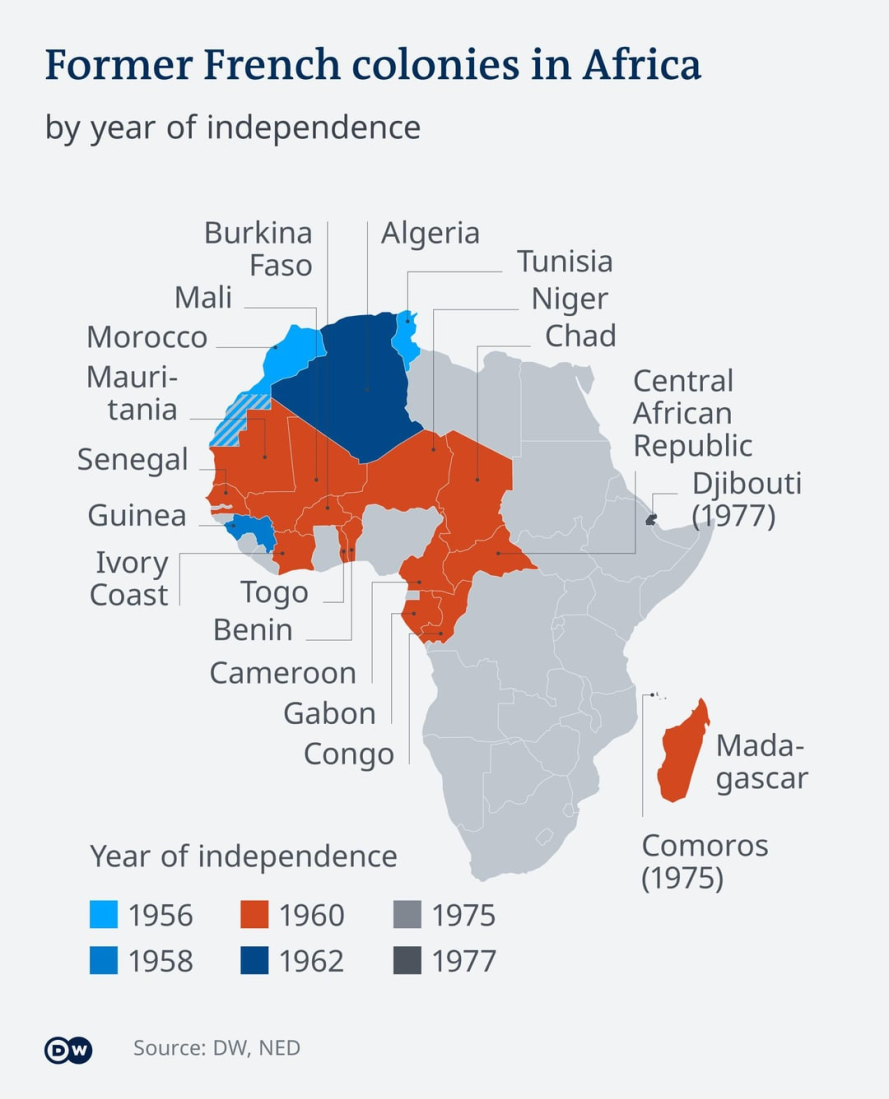
The French Reaction: Colonial Vengeance and Systematic Destruction
France's response to Guinea's defiant choice was swift, brutal, and calculated to serve as a warning to other colonies contemplating independence.
The colonial administration's withdrawal was characterised by unprecedented vindictiveness that went far beyond mere administrative departure.
As reported by The Washington Post at the time, "the French pulled out of Guinea over a two-month period, taking everything they could with them.
They unscrewed light bulbs, removed plans for sewage pipelines in Conakry, the capital, and even burned medicines rather than leave them for the Guineans".
This systematic destruction represented one of the most petty and destructive decolonisation processes in African history. French officials removed or destroyed virtually every piece of equipment, document, and infrastructure they could access.
They poured cement into water pipes, dismantled telecommunications equipment, and even took furniture from government buildings. The message was clear: any colony choosing independence would be left to face complete isolation and economic collapse.
Beyond the physical destruction, France implemented a comprehensive strategy to ensure Guinea's failure. All economic aid and technical assistance were immediately terminated, French markets were closed to Guinean products, and investment was withdrawn.
Perhaps most cruelly, France ceased paying pensions to Guinean veterans who had fought for France in two world wars, abandoning men who had risked their lives in service of the colonial power.
France's vindictive campaign extended to international diplomacy, where it threatened to leave NATO if other Western allies recognised Guinea's government.
This pressure was initially successful, with the United States refusing to extend diplomatic recognition until November 1958. The French government was determined to make Guinea's independence so catastrophic that no other colony would dare follow its example.
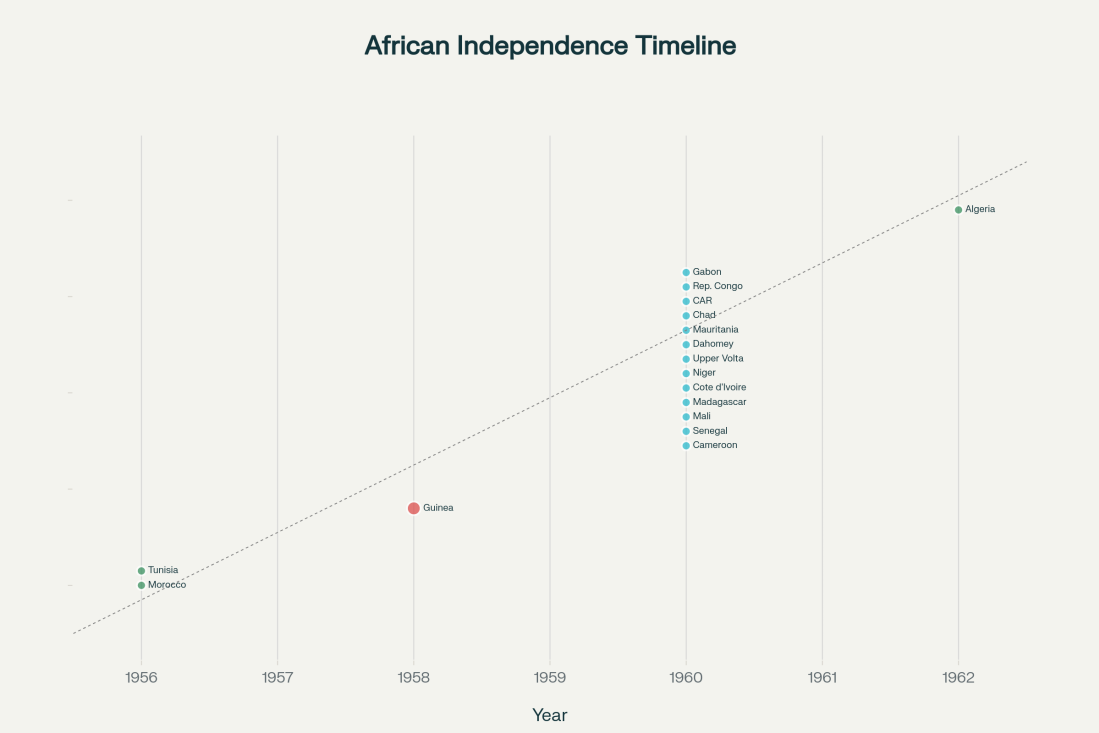
Operation Persil: Covert Destabilisation and Currency Warfare
When Guinea survived the initial shock of French withdrawal and began establishing independent relationships with the Soviet Union and other nations, France escalated its campaign of destabilisation.
In 1960, the French intelligence service launched Operation Persil, a covert operation designed to destroy Guinea's economy through currency manipulation and political subversion.
Named after a popular detergent brand, Operation Persil was conceived as a means to "wash away" Touré's government.
The operation involved printing massive quantities of counterfeit Guinean francs and smuggling them into the country to create hyperinflation.
The forged currency was produced in Senegal with the assistance of Guinean exiles and then transported across the border to flood Guinea's markets.
Maurice Robert, head of the African cell for France's external intelligence agency SDECE, later revealed the operation's scope and methodology.
The plan encompassed multiple phases including intelligence gathering, strategic planning, logistical implementation, and the establishment of opposition militias in the Fouta-Djalon region with the help of Guinean exiles in Senegal.
The ultimate goal was to render Touré's government vulnerable and unpopular, facilitating its overthrow by French-backed opposition forces.
However, Operation Persil ultimately failed when the covert campaign was exposed. The Guinean government issued formal complaints to international bodies, and the operation became another symbol of France's determination to prevent successful decolonisation.
This failure demonstrated both the resilience of Guinea's new institutions and the international community's growing intolerance for such blatant interference in sovereign states.
International Solidarity and the Cold War Context
Guinea's survival during this critical period was made possible by an unprecedented display of international solidarity, particularly from other newly independent African nations and Cold War powers seeking to challenge Western hegemony.
Ghana, under Kwame Nkrumah's leadership, emerged as Guinea's most crucial supporter, providing an immediate loan of £10 million and forming the Ghana-Guinea Union in 1958.
This gesture of Pan-African solidarity demonstrated Nkrumah's commitment to continental liberation and provided Guinea with the financial lifeline necessary to maintain basic government functions.
The Soviet Union and China also recognised the strategic opportunity presented by Guinea's break with France. Both nations provided economic aid, technical assistance, and military support to the fledgling republic.
By 1960, nearly half of Guinea's exports were directed to Eastern Bloc nations, while these countries provided millions of dollars in development assistance.
This partnership allowed Guinea to diversify its international relationships and reduce its dependence on Western markets that remained largely closed to Guinean products.
The United Arab Republic under Gamal Abdel Nasser also provided crucial support, as did hundreds of African volunteers from across the continent who travelled to Guinea to help prevent the collapse of its administrative systems.
This international solidarity network not only sustained Guinea through its most vulnerable period but also demonstrated the global significance of its independence struggle.
The Catalyst for Continental Liberation
Guinea's successful independence had profound implications that extended far beyond its borders.
The country's survival despite French punishment served as concrete proof that African nations could successfully break free from colonial control and maintain their sovereignty.
This example proved particularly influential for other French colonies that had initially accepted the French Community arrangement.
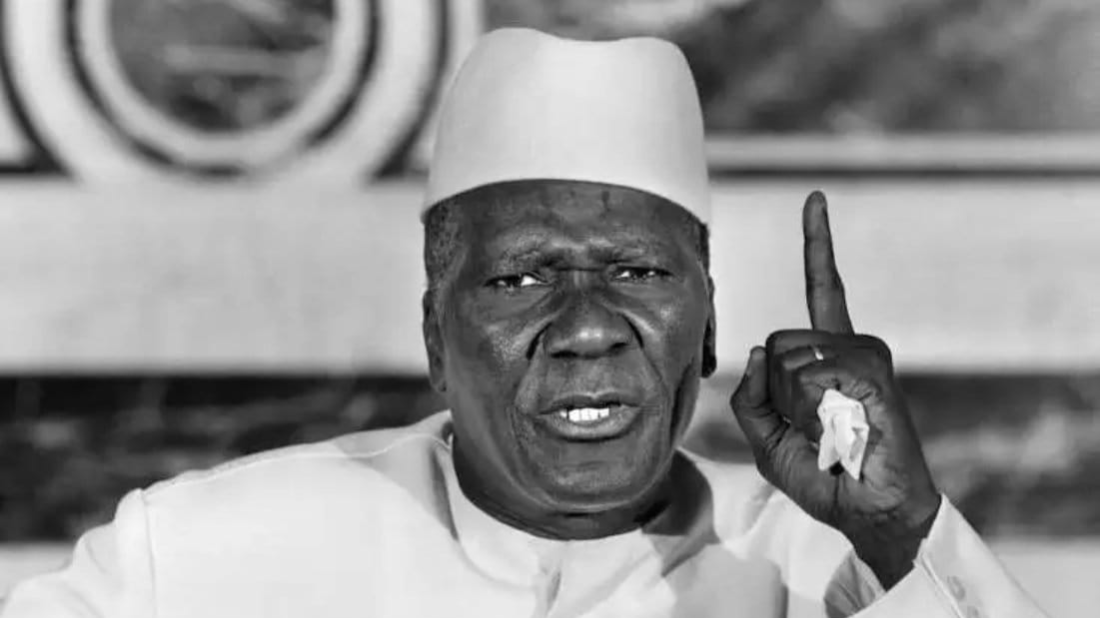
Within two years of Guinea's independence, the entire French Community system had collapsed. Senegal and French Sudan (Mali) formed the Mali Federation and demanded complete independence in 1959, followed rapidly by all other French territories in West Africa.
By November 1960, every French colony in Africa had achieved independence, making 1960 the celebrated "Year of Africa" when seventeen nations gained their freedom.
Guinea's precedent demonstrated that immediate independence was not only possible but preferable to the gradual autonomy promised by colonial powers.
The country's experience revealed that colonial powers would attempt to maintain control through economic dependence and political manipulation, making complete separation the only viable path to genuine sovereignty.
This lesson influenced liberation movements across Africa and accelerated the pace of decolonisation throughout the continent.
The psychological impact of Guinea's independence was equally significant. For the first time, an African colony had explicitly rejected the premise that European guidance was necessary for successful governance.
Touré's declaration that dignity required freedom resonated across the continent, inspiring other leaders to demand immediate rather than gradual independence.
Ahmed Sékou Touré: Liberation Hero and Controversial Leader
Ahmed Sékou Touré emerged from Guinea's independence struggle as one of Africa's most significant political figures, embodying both the heroic determination of the liberation movement and the subsequent challenges of post-colonial governance.
Born in 1922 in Faranah, Touré came from humble origins but possessed remarkable political acumen and oratorical skills that made him a natural leader of Guinea's nationalist movement.
Touré's political consciousness was shaped by his experiences as a trade union organiser, where he witnessed firsthand the exploitation of African workers under colonial rule.
His successful organisation of the first major strike in French West Africa, which lasted 76 days, established his reputation as an effective leader capable of mobilising mass support against colonial authorities.
This experience in labour organising provided him with the grassroots connections and organisational skills that would prove crucial in Guinea's independence campaign.
As Secretary-General of the PDG and later as Guinea's first president, Touré demonstrated exceptional courage in confronting French power. His willingness to risk Guinea's economic survival for the principle of independence marked him as one of Africa's most uncompromising anti-colonial leaders. His famous retort to Charles de Gaulle's threats exemplified the moral clarity that inspired not only Guineans but liberation movements across Africa.
However, Touré's post-independence leadership proved deeply problematic. After establishing Guinea as Africa's first openly Marxist state, he consolidated power through increasingly authoritarian methods. The establishment of a one-party state in 1960, the imprisonment and execution of political opponents at the notorious Camp Boiro, and the creation of a paranoid security apparatus that terrorised the population for over two decades severely tarnished his legacy.
An estimated 50,000 people were killed during Touré's 26-year rule, and hundreds of thousands more fled into exile, creating a devastating brain drain that hindered Guinea's development for generations. The exodus of skilled professionals and entrepreneurs left the country ill-equipped to manage its abundant natural resources or build effective institutions. By the time of Touré's death in 1984, Guinea had become one of Africa's poorest nations despite its mineral wealth, a tragic irony given his promise that independence would bring prosperity.
Economic Consequences and the Resource Curse
Guinea's post-independence economic trajectory illustrates both the challenges of decolonisation and the persistent problems associated with resource-dependent economies. The immediate economic crisis created by French withdrawal was severe but temporary; the longer-term consequences of political mismanagement and over-reliance on mineral exports proved more damaging to the country's development prospects.
The French economic boycott forced Guinea to rapidly restructure its trade relationships and develop new markets for its products. While this initially created significant hardship, it also pushed Guinea toward greater economic diversification and reduced dependence on French markets. The shift toward trade with Soviet Bloc nations and newly independent African countries demonstrated Guinea's potential for economic independence when political will existed.
However, Guinea's vast mineral wealth, particularly its bauxite reserves, gradually became both a blessing and a curse. The country possesses the world's largest bauxite reserves and is currently the globe's leading bauxite exporter, accounting for approximately 73% of global seaborne bauxite trade in 2025. Guinea's bauxite exports reached a record 99.8 million tonnes in the first half of 2025, representing a remarkable 36% increase from the previous year.
Despite this mineral abundance, the majority of Guineans remain poor, highlighting the persistent challenges of resource-dependent development. The concentration of mining operations in the hands of foreign companies, primarily Chinese firms that now control over 60% of Guinea's bauxite exports, has created new forms of economic dependency. While these investments have generated employment and government revenues, they have not translated into broad-based development or poverty reduction for the general population.
Guinea Today: Democracy, Development, and Ongoing Challenges
Contemporary Guinea faces many of the same challenges that have plagued the country since independence, including weak institutions, political instability, and economic inequality. The 2021 military coup that brought Colonel Mamadi Doumbouya to power represents the latest chapter in Guinea's troubled post-colonial political history.
Doumbouya's government has implemented significant reforms in the mining sector, revoking over 50 mining licenses in 2025 and demanding that foreign companies invest in local processing facilities rather than simply extracting raw materials. These measures reflect a growing trend of resource nationalism across West Africa, as governments seek to capture greater value from their natural resource endowments.
The September 2025 constitutional referendum, which passed with 89% approval according to official results, has set the stage for presidential elections scheduled for December 28, 2025. The new constitution extends presidential terms from five to seven years and removes previous restrictions on military government members participating in elections, potentially allowing Doumbouya to transition from coup leader to elected president.
However, opposition leaders have questioned both the legitimacy of the referendum process and the reported voter turnout figures, highlighting persistent concerns about democratic governance in Guinea. The suspension of major opposition parties and allegations of human rights violations against political activists indicate that Guinea's democratic transition remains fragile and contested.
The Enduring Legacy of October 2, 1958
As Guinea celebrates its 67th independence anniversary today, the legacy of October 2, 1958, remains profoundly relevant to contemporary African politics and international relations. Guinea's courageous choice to prioritise sovereignty over security established principles that continue to influence liberation movements and post-colonial development strategies across the Global South.
The immediate significance of Guinea's independence lay in its demonstration that African nations could successfully challenge colonial control and survive the subsequent economic and political pressure. This precedent provided crucial psychological and practical encouragement to other independence movements, accelerating the pace of decolonisation throughout Africa and inspiring liberation struggles in other regions.
Guinea's experience also revealed the true nature of colonial relationships and the extent to which European powers would go to maintain control over their former territories. The vindictive French response to Guinea's independence, including systematic infrastructure destruction and covert destabilisation operations, exposed the myth of benevolent colonialism and demonstrated that genuine independence required complete separation from colonial structures.
The solidarity shown by Ghana, the Soviet Union, China, and other nations in supporting Guinea during its most vulnerable period established important precedents for South-South cooperation and alternative development partnerships. These relationships demonstrated that newly independent nations could reduce their dependence on former colonial powers by diversifying their international partnerships and pursuing alternative models of economic development.
However, Guinea's subsequent political and economic struggles also illustrate the immense challenges faced by post-colonial societies attempting to build effective institutions and sustainable development models. The country's experience with authoritarian governance, economic mismanagement, and continued dependence on mineral exports highlights the gap between political independence and genuine development.
Guinea's story serves as both an inspiration and a cautionary tale for contemporary movements seeking political and economic transformation. The courage demonstrated on October 2, 1958, remains an enduring example of the power of collective will and principled leadership, while the subsequent challenges emphasise the complexity of translating political liberation into broad-based development and democratic governance.
Conclusion: From Colonial Defiance to Contemporary Relevance
Today, as Guinea marks another Independence Day, the country stands at another crossroads. The current government's efforts to assert greater control over natural resources and transition to civilian rule echo the same themes of sovereignty and self-determination that motivated the independence movement sixty-seven years ago. The challenge remains the same: how to translate political independence into genuine prosperity and democratic governance for all Guineans.
Guinea's independence day is ultimately a celebration of human dignity and the universal aspiration for freedom. Ahmed Sékou Touré's declaration that Guinea preferred "poverty in freedom to wealth in slavery" articulated a principle that transcends national boundaries and historical periods. In an era of renewed great power competition and persistent global inequality, Guinea's example reminds us that true sovereignty requires the courage to prioritise principles over immediate material interests.
As Guineans gather today to commemorate their independence, they carry forward both the pride of their historic achievement and the responsibility to complete the work of building a just and prosperous society. The spirit of October 2, 1958, continues to inspire not only Guinea but liberation movements worldwide, serving as an enduring testament to the transformative power of collective courage and unwavering commitment to human dignity.
The red, yellow, and green flag that flies over Guinea today symbolises the blood shed for independence, the sun and riches of the land, and the vegetation and hope for the future. These colours represent not just Guinea's past struggles and present resources, but its enduring potential for a future worthy of the sacrifices made on that historic October day when a small West African nation dared to say "no" to colonial domination and "yes" to the possibility of genuine freedom.
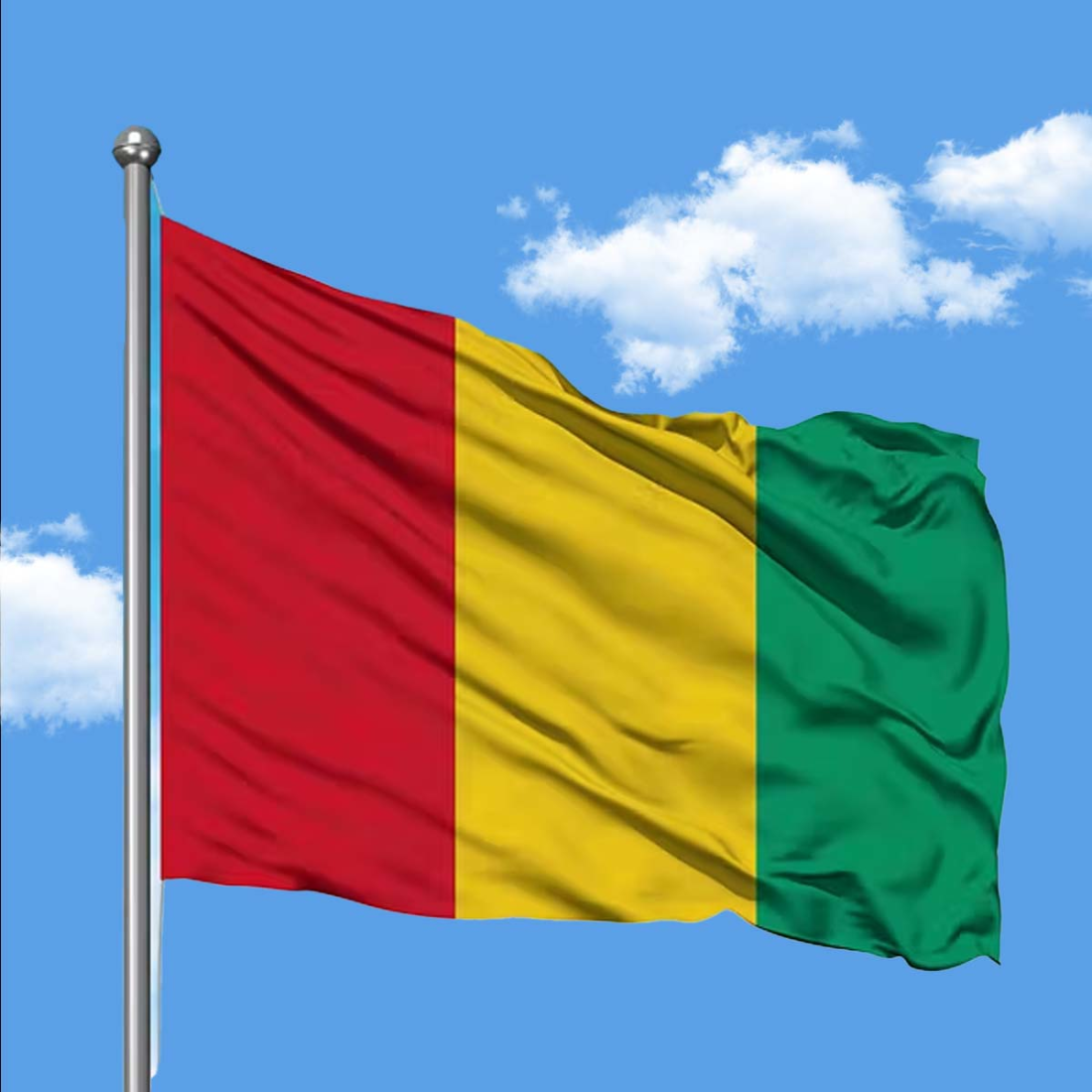
U.S. President Donald Trump said the U.S. military has enough stockpiled weapons to fight wars "forever"; in a social media post late on Monday. The remarks came hours before conflict in Iran and the Middle East entered its fourth day.
U.S. first lady, Melania Trump chaired a UN Security Council meeting on children and education in conflict on Monday (2 March), a move criticised by Iran as hypocritical following U.S. and Israeli strikes that triggered a UN warning about risks to children.
A torpedo from a U.S. submarine sunk an Iranian warship off the coast of Sri Lanka, U.S. Secretary of Defense, Pete Hegseth told reporters as the Iranian conflcit entered its fifth day on Wednesday.
The U.S. embassy in Riyadh was hit by two drones resulting in a limited fire and some material damage, the kingdom's defence ministry said in a post on X on Tuesday, citing an initial assessment.
Shahid Motahari Sub-Speciality Hospital in northern Tehran and parts of the Golestan Palace were bombed on day two of the U.S.‑Israel strikes. AnewZ Touraj Shiralilou is in Iran's capital city and said that the facility was flattened in an airstrike.
Israel has warned residents to leave a significant area in southern Lebanon, instructing them to move north of the Litani River as hostilities with the Iran-backed Lebanese group Hezbollah intensified on Wednesday.
U.S. Defense Secretary Pete Hegseth says the United States is making gains in its conflict with Iran after a key Iranian naval target was destroyed, confirming that the strike was carried out by a U.S. submarine off the coast of Sri Lanka. Rescue efforts are now under way for the ship’s crew.
Start your day informed with AnewZ Morning Brief. Here are the top news stories for the 4th of February, covering the latest developments you need to know.
Strikes across the Middle East are intensifying, fuelling travel disruption, driving up global energy prices and forcing diplomatic missions to shut their doors.
U.S. President Donald Trump has said the United States has a “virtually unlimited supply” of munitions and is capable of sustaining military action indefinitely, as the conflict with Iran entered its fourth day.
You can download the AnewZ application from Play Store and the App Store.

What is your opinion on this topic?
Leave the first comment